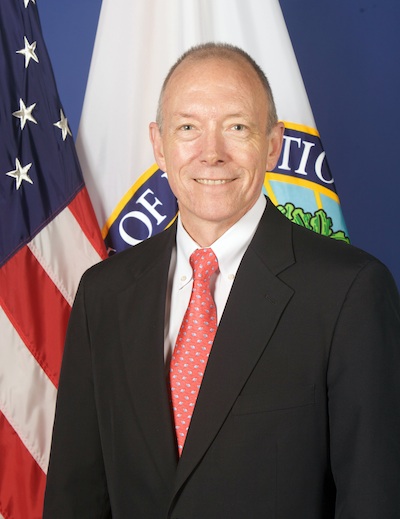Education Department Confirms 'Reciprocity' Definition Clarification
Published by: WCET | 1/19/2017
Tags: Distance Education, Financial Aid, Reciprocity, Regulation, SARA, State Authorization, Title IV, U.S. Department Of Education, WCET
Published by: WCET | 1/19/2017
Tags: Distance Education, Financial Aid, Reciprocity, Regulation, SARA, State Authorization, Title IV, U.S. Department Of Education, WCET
Thank you Ted Mitchell!
In his last hours as the Under Secretary of Education, Mitchell wrote a letter to Marshall Hill (Executive Director, NC-SARA) and me confirming the clarifications to state authorization regulations that Department staff made to me and I recently reported. The Department has long-supported reciprocity as a path to state authorization for distance education. In response to a query from NC-SARA and WCET, today’s letter confirms a reciprocity definition that keeps one state from undermining the whole agreement.

If each state can do what it wants, there is no reciprocity. That was NOT the Department’s intent.
Conflicts Between a State and a Reciprocity Agreement Must Be Resolved
Suppose that a state’s laws or regulations are in conflict with a reciprocity agreement that the state is seeking to join or is already a member. The state and the agreement are expected to resolve that conflict:
“In other words, a distance education reciprocity agreement may require a State to meet the requirements and terms of that agreement in order for the State to participate in that agreement.”
The key sentences in Mitchell’s letter of January 19 describing the consequences of a state no longer remaining in good standing with a reciprocity agreement follow:
“Thus, if the Department becomes aware of an unresolved conflict between the terms of a reciprocity agreement and existing State statutes and regulations, affected institutions seeking authorization via a reciprocity agreement would not be considered authorized under the Department’s regulation. Once a State has resolved the conflict within its own body of law, or the reciprocity agreement amends its conditions so as not to preempt state law, affected institutions will be found in compliance. ”
Thank You and What’s Next
Marshall and I, are overjoyed at the clarification. I’m sure the more than 1,300 institutions participating in SARA are happy, as well.
The state authorization regulation might make it to being enacted in July 2018. We will learn more about Congress’s intentions after the inauguration. We also feel confident that the new administration will also be supportive of reciprocity. In any case, uncertainty about the future of the federal regulation remains, but states still expect you to be in compliance. Meanwhile, we are very pleased at the Department’s on-going support of reciprocity as a key part of the their regulation.
Thank you Ted. And thank you to the Department staff who worked very hard to craft this letter and deliver it to us this week.
Russ
Executive Director, WCET & Vice President for Technology-Enhanced Education, WICHE (retired)
8 replies on “Education Department Confirms ‘Reciprocity’ Definition Clarification”
[…] Definition clarification of state authorization reciprocity agreement. […]
[…] authorization regulation. Wait, wait…he was not wearing his tin foil hat, it really happened. They confirmed it in a letter. Language that seemingly undermined the State Authorization Reciprocity Agreement actually was […]
[…] Since states joining SARA agree to its provisions, “conflict” is removed before it can join. A letter from the Undersecretary of Postsecondary Education describing this clarification of the Department’s intent was sent to WCET and NC-SARA. While this […]
What is meant by:
The key sentences in Mitchell’s letter of January 19 describing the consequences of a state remaining in [?] no longer being in good standing with a reciprocity agreement follow:
Thanks Evan. I fixed that paragraph so that it actually makes sense.
Russ Poulin
[…] albatross around the Department’s neck (for a bit of history take a look here, here, here, here, here, here, here, and here). Basically, the Department seems to be deleting all of the federal state […]
[…] contains the same problematic language that was released in 2016, but we believe the Department will use the interpretation they gave to us in early 2017 to preserve reciprocity. There are critics who would love to kill reciprocity, and we will need to […]
[…] the “Ted Mitchell Compromise.” Frontiers posts during January 2017 more fully describe the Ted Mitchell’s response and also the communications related to clarification from the Department to Russ […]